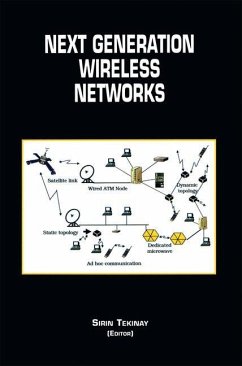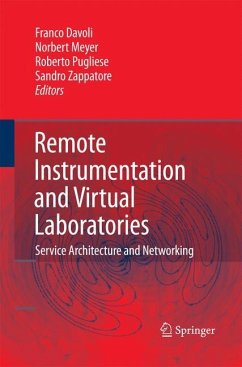
Next Generation Wireless Networks

PAYBACK Punkte
19 °P sammeln!
This book is a collection of extended versions of the papers presented at the Symposium on Next Generation Wireless Networks, May 26, 2000, New Jersey Institute of Technology, Newark, NJ. Each chapter includes, in addition to technical contributions, a tutorial of the corresponding area. It has been a privilege to bring together these contributions from researchers on the leading edge of the field. The papers were submitted in response to a call for papers aiming to concentrate on the applications and services for the "next generation," deliberately omitting the numeric reference so that the a...
This book is a collection of extended versions of the papers presented at the Symposium on Next Generation Wireless Networks, May 26, 2000, New Jersey Institute of Technology, Newark, NJ. Each chapter includes, in addition to technical contributions, a tutorial of the corresponding area. It has been a privilege to bring together these contributions from researchers on the leading edge of the field. The papers were submitted in response to a call for papers aiming to concentrate on the applications and services for the "next generation," deliberately omitting the numeric reference so that the authors' vision of the future would not be limited by the definitive requirements of a particular set of standards. The book, as a result, reflects the top-down approach by focusing on enabling technologies for the applications and services that are the defining essentials for future wireless networks. This approach strikes a balance between the academia and the industry by addressing new wireless network architectures enabling mobility and location enhanced applications and services that will give wireless systems the competitive edge over others. The main theme of the book is the advent of wireless networks as an irreplaceable means of global communication as opposed to a mere substitute for, or a competitor of, wireline networks. Geolocation emerges as the facilitator of mobility and location sensitive services. The fields of geolocation and wireless communications have been forced to merge, following the Federal Commission of Communications' (FCC) ruling that obliges wireless providers with emergency caller geolocation.














